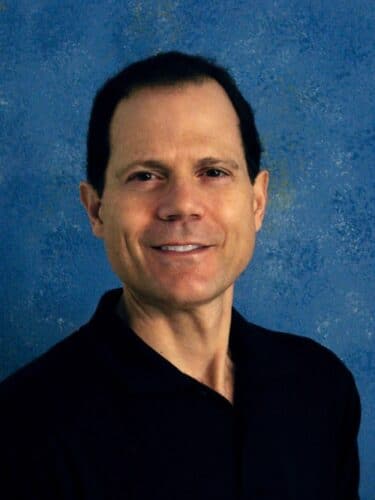
Deane’s List
By Fred Deane

Fred Deane
Deane’s List 3 presents Jimmy Steal, Jeremy Rice, Tommy Chuck and Rich Davis, deep thinking programmers who offer some thought-provoking areas of concern for an industry that’s hungry for solutions. Proactive advocacy is in order, and industry commitment and forward progress are certainly worthy pursuits.

Jimmy Steal
Jimmy Steal, VP of Brand & Content, 101.9 THE MIX & 100.3 SHE
Since talent is the great differentiator for terrestrial radio, why hasn’t the identifying, nurturing, and hiring of breakthrough talent been prioritized and promoted in a significant way by our industry or industry trade organizations?
The industry has semi-tossed in the towel with respect to recruiting and developing new talent with many Top 40 outlets. The precedent of nationally syndicated morning shows has dominated the on-air Top 40 landscape for 20 years and although the concept was adopted long before this period, it’s never been as widespread as it’s been over that same period especially in the Pop format.
It’s a classic double-edged sword scenario. The benefit is utilizing a successful and highly engaging major market show and importing it to medium and smaller markets granting those stations, and their listeners, the opportunity to enjoy high functioning shows. The downside is you’ve essentially capped the market for personalities well before its time in an era leading to current times when radio needs localization more than ever as that point of differentiation.
The economy of scale cost savings benefits of this aggressively implemented initiative quickly spread to other dayparts over that same period of time, leading to our present dilemma of the lack of quality up and comers.
By lessening the pathway of entry to the air talent profession quite a bit, it no longer was appealing for companies to take a 180-degree approach to reinvesting in developing new talent, while possible prospects for these positions weren’t being encouraged ANYWHERE throughout our industry and the various trade organizations. Fundamentally, there has been a talent dearth along with diminished opportunities which have made pursing these positions practically an outmoded concept to young prospects.
It’s another major self-inflicted wound the industry has stricken itself with by not thinking about the long-term effects of these long-term deals that were created with nationally syndicated air talent shows of all varieties.
I’ve always believed nationally syndicated shows should be part of the air talent equation, but never to the extent achieved over the past two decades. It’s another example of corporate myopia by discarding future consequences for intermediate term corporate remedies, mainly focused on financial issues. Unless you’re completely unaware of your business model and the industry model you are operating within, there’s simply no excuse to continue to generate problems for yourself for relatively quick fix initiatives that damage future competitive strategies.
Solving this riddle needs internal leadership and motivation to set forth an agenda that seriously addresses the future of this vital area of our business, including timelines of identifying existing talent that are future prospects for key dayparts AND talent recruitment initiatives that are vigorously driven by radio companies and industry trade organizations alike.
It’s time for industry leadership to stand up and be counted for on this crucial issue.

Jeremy Rice
Jeremy Rice, PD, WXXL Orlando
What are your top bullet points for a first time PD to be successful in 2022?
I cherish the thought of giving advice to first-time PDs in 2022, but then I ponder how improbable this scenario is given the extensive attrition that has beset the programming workforce across the country.
It might be a more constructive exercise if I outline some key points of interest to all programmers in 2022 (and going forward) which would certainly apply to first timers.
Success these days in the programming ranks is directly linked to your given opportunity and the circumstances that envelop your current situation. There is no general handbook to programming success in today’s restrictive radio environment, although cases may be similar, there are variations among most positions. Each company has respectively redefined the role of the current PD.
Assuming you’ve made the cut, or if you’re just getting that first shot, fluid adaptability is paramount in your style and approach. The role and the marketplace are constantly shifting situations. You need to have a steady hand and be able to call daily and weekly audibles so your brand is as fresh as your company will allow it to be on a continuous basis.
You must possess high tolerance levels of frustration by virtue of a skeletal, if non-existent, support staff. You need to have good A.D.D., the ability to multi-task and be decisive in relatively quick ways on multiple decisions so your workload does not overwhelm your daily schedules.
You need to be short-term goal-oriented and take pride in the small tasks you accomplish on your daily agenda to get to the higher priority goals that are more consequential to the performance of your product.
Do not be timid up the chain of command. Whether you’re getting that first shot, or you’ve been there, assume they think you’re good. Good enough that your company rewards you with a job. They expect a high output rate, given your workload, so demand and expect a lot in return. Do not be afraid to question decisions that may impede the progress of your success or your brand’s success.
This is a collective effort. Decisions don’t only run downhill. Demands must be made to direct reports that establish a relationship of an equitable and collaborative effort. If one succeeds, we all succeed, and so on. Respectfully challenge your company as much as they challenge you and you will gain respect in the process.
Finally, be patient. Have the foresight to suffer some short-term losses in exchange for some long-term gains. Accept the fact that you won’t win every battle. It doesn’t mean you should not constantly challenge. You should compete for your brand at every level and at every opportunity in and outside the walls of your station. But if you don’t get a favorable response in a given scenario, accept defeat and chalk it up to experience. However, make sure you win some as well. This is not a lopsided affair and no employee in radio today should be taken for granted.
Mutual respect and support need to be a two-way street, with no red lights or stop signs.

Tommy Chuck
Tommy Chuck, SVP/Programming, iHeartMedia West Central Florida
What are some ideas you have for gathering ratings data that is more consistent and reliable across all demographics?
It’s amazing how often our current ratings system comes up in my discussions with several programmers. It’s a major concern among several programmers. Unfortunately, as scientific as any ratings methodology appears to be, it’s not a perfect science.
I’m sure there are others in our industry that can speak with more authority on the issue, but I always approach concerns about ratings with a distinctive mindset.
Ratings services that dedicate themselves to the measurement game for any medium are not going to drastically change their methodologies over long periods of time. It’s too costly once they’ve established a dominant foothold in an industry as the accepted form of measurement by all relevant parties. The clients they serve fall victim to the imperfections and nuances inherent in all these systems, but the assumed acceptance must be realized, so radio needs to redefine its approach to the game.
The game is to win! Win at everything you do. I would let the ratings go along for the ride of a well-operated, well-branded, and well-positioned radio station. If all the essential elements of your product marketing strategies meet high levels, then ratings will follow suit.
If you’re an integral contributor to your community on several levels, the clients will feel your local presence and influence on consumers and the marketplace, and the rewards will follow. If you treat your communities in very generic ways, you will blend into the scenery and your station will not resonate to the levels you desire in the market or in the ratings.

Rich Davis
Rich Davis, Program Director, KDWB & KTCZ Minneapolis
What do you think of records released years ago and suddenly charting again at Pop radio, and should programmers generally jump in with both feet (i.e., Kate Bush), or are there other factors that should be considered?
The issue here is addressing “in the moment, trending songs” that are literally exploding in the metrics before our very eyes. Pop radio jumping on a 37 year old song like “Running Up That Hill” doesn’t speak with authority to the cutting-edge nature of Pop culture, UNLESS it’s driven by Pop culture vehicles from other platforms…enter Stranger Things and TikTok.
As much as I’ve always admired the avantgarde nature of Kate Bush back in her day, it doesn’t thrill me to hear this song in today’s Top 40 mix. But research has taken hold in a huge way, so the direct response to your question is YES, play the right trending songs from other platforms, and NO I would not like to see more retreads on Top 40 radio.
Let’s learn a valuable lesson though. I often tout the value of hot trending songs from platforms outside the radio realm. Labels have prudently used this concept to guide much of their A&R efforts and it’s a rewarding trend that needs to flourish further if radio is ever to get back into the Pop culture game with today’s younger demo groups.
Let’s exert more energy in integrating this entire process into our game plans and be much more aggressive in the various ways we program trending music and artists from other platforms in a way that enhances Top 40’s role in Pop culture among all key demo groups, the way Top 40 has always been successfully branded.
Fred Deane is the Founder & CEO of Deane Media Solutions, a firm designed as a medium and pathway of productive and meaningful idea interactions among the multi-media and music industries. Deane has been serving our industry for over four decades, dedicating his career to challenging himself as well as associates, and being a devoted advocate for the radio medium. His academic background includes law, economics, and musicology. He has also served as an Adjunct Professor for several Philadelphia area universities, instructing at the undergraduate and graduate levels.

